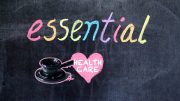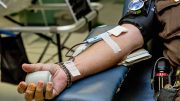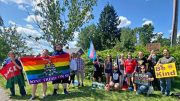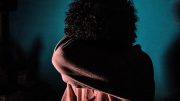 By: Nicole Lashomb /TRT Editor-in-Chief—
By: Nicole Lashomb /TRT Editor-in-Chief—
Twenty-something year old nationally and internationally acclaimed Boston film maker, Amir Dixon, is no stranger to oppression and the ramifications of such a concept. As a black gay man, fighting against the mainstream “norm,” Dixon knows all too well what it means to be discriminated against, even along the freedom trail. In this exclusive TRT interview, Dixon unveils his non-apologetic approach to ending oppression of marginalized communities. Some may consider it radical, and others, enlightened and honest. An indispensable role-model in the LGBT community, this man with a vision also earned a spot in The Advocate’s 40 under 40 honors and also received the 2013 NYC Black Pride Award.
The Rainbow Times: What motivated you to be a filmmaker?
Amir Dixon: I have always been a writer. In 2009, I decided that I wanted to take my art to the next level. And for me, that was film. I started my production company, Nu Nation Now Productions, out of a need to create work that told the stories of marginalized and oppressed people. With and through our own voices, I find that much of the work out there that talks about people like us, look nothing like us [people of color]. So, I felt it was time that I take back my voice and not wait around for others to attempt to tell my story. I got my hand on every resource I could find and educated myself. I felt it; I wanted to bring my words to life in ways that on paper I could not. I wanted to paint a picture. From there, all things fell into place.
Q. Why did you create your film, Friend of Essex?
A. I needed to produce the film to survive. It may sound melodramatic to some but it is the truth. The CDC released a report that HIV among young black gay men was up more than 50 percent. At the same time, close friends around me were finding out they were positive. HIV was no longer just statistics to me, it became real. All of this took a huge emotional toll on me. In my mind, I started wondering when it would be my turn. At the same time, I am dealing with navigating a racist, sexist, [and] classist world. All these things came together and I needed to capture the stories of young gay, bisexual, queer and same-gender loving men like myself. If I had not followed that voice and produced the film, I honestly don’t know where I would be today.
Q. Femmephobia, according to several online sources, is a devaluation, hatred and fear of anything feminine, whether it’s used for lesbians or gay men. In your work, you refer to femmephobia too. What do you mean by it precisely and what communities are you particularly concerned with when it comes to femmephobia?
A. This is an amazing question, and thank you for asking me this question. Let’s get clear about something. Oppression in all its forms is birthed out of religious doctrine. And, its first born child is white supremacy and white supremacy’s children are racism, sexism, homophobia, classism and anti-albleism. So, for me and every person out there who is truly doing the anti-oppression work, this is the fight of our lives, this is David and Goliath! And, to be honest, the fight against oppression in our community is a fight we are losing. Some of the most racist, sexist, homophobes are other LGBTQ people especially gay men. So to speak directly to the fight against femmephobia, it first has to be a fight “in house” meaning in our community where it is so prevalent. As LGBTQ people, we hate men who are perceived as feminine and all together hate women and this is born out of white supremacy, which gave us our marching orders from a book called the Bible! It is my belief that some people consciously and some unconsciously hate all things feminine because people believe it to be a form of weakness, deeming people who are feminine to be second class citizens. We have to address this now among ourselves, otherwise, all the work we do outside of our community is pointless and a waste of time.
But, to truly IRRADIATE oppression, we have to chop its head off. We have to find our collective voice and address our internal $hit to get the work done. How do we do that? By knowing that everyone gets a seat at the table and understands that all of our oppression is directly connected and get to the work. We have to get in the ring together and write our stories on the wall of the ring in the blood of our oppressors. Who is our oppressor: Religious homophobia and white supremacy. I am constantly accused of being anti-white, which is not the case. I want to be crystal clear when I say this white supremacy does not discriminate on who its followers can be; people of color, men, women and people from different creeds and backgrounds are all a part of holding up white supremacy. In the LGBTQ community our hate of all things feminine is simply us projecting our own self-hate outward onto others who dare to be themselves.
I truly hold anti femmephobia close to my heart because I have two sisters and I hold my mother close to my heart and I see the effects it has on them. I know I must address this, and as a gay man, I have an obligation to address all agents of oppression.
Q. What can you tell us about your trip to Uganda? How was your film received?
A. To speak about what was going on in Uganda in Friend of Essex was not optional, it was a must because these are my brothers and sisters and their stories needed to be heard. The screening in Uganda was well received. What I thought about was how conversations in different cities around the world are so different. In Uganda, people connected too and wanted to talk about religious homophobia. At Morehouse in Atlanta, people were drawn to addressing femmephobia. Uganda was special to me because the activists there are facing life or death and they dared to get in the ring and get the work done. While here in the states, we are lost in marriage equality. We have politicians trying to make sure we don’t get health care, while we have trans folks being killed, our sisters being raped and harassed on the streets. We have to get our priorities in order.
Q. We know you were also the director of Brotherhood TV, which was filmed prior to Friend of Essex. Did that series influence your production of Friend of Essex?
A. Brotherhood TV was some of the most fun I have ever had on a project! I learned so much about myself as a leader, an activist and an artist. I am forever indebted to the other brothers who were on the project with me. Directing Brotherhood TV really was a catalyst to Friend of Essex. I cannot explain to you how many emails, tweets, calls and things that I have received from others in the LGBTQ community thanking me for the show, as well as sharing their own story. We talked about many taboo things that we simply do not talk about in our community, like domestic violence. As a survivor, I understood it was imperative that we tell the truth about who and what we are and I took that same understanding to producing Friend of Essex.
Q. Do you think that the Boston LGBTQ community understands the needs of the LGBTQ black community?
A. No! Boston is a very racist city, sucks to say, but it is very true. I grew up in South Florida, where people were blatant with their racism. Here in Boston, people are racist and will try to convince you that being [that] they are gay themselves, they cannot be racist or will try to tell you because they voted for President Obama, they are not racist. I feel Massachusetts really represents who and what we are as a nation. We have our very conservative parts and we have Boston that says they are Liberal. But overall, as a state, we are the land of the have and the have nots. We make sure that “certain” people stay in “certain” places. It is an understood rule that people that are not welcomed in certain neighborhoods and from experience, and from stories I have heard from others, people will go out of their way to make sure you know that.
Q. The film discusses the importance of black LGBTQ people to demand a seat at the table of what traditionally has been a white role within mainstream LGBT organizations. How can people of color do this and what can the white LGBTQ community do to collaborate so that all voices are heard, understood, educated and celebrated?
A. One of the people in the film said it best, “if you are not at the table you are on the menu.” As people of color we have to put our gloves on, take off the rose colored glasses and get our a$$es in the ring. There is a fight happening outside that we seem to often not to be engaged in. Growing up, my mother always told my sisters and I, “When going into battle, don’t worry about winning. Stay focused on fighting for your life.” Although when she was telling us this, it was not about social justice, I feel this saying can be applied to social justice [too]. We have to not think about winning or not getting scarred. We have to think about just getting in the game and fighting for our lives, especially being that the game was not built for people of color or women. We have an obligation to get in there and fight, if not for ourselves, for those that will come after us.
As for white LGBTQ people, do not try to speak for people of color. Plain and simple; because you end up representing yourself while saying, “I did it for ‘them.’” Look at the mainstream LGBTQ agenda push towards assimilation. This in itself is killing our culture, and making us into carbon copies of white heterosexual men. I don’t want any part of that. If that is your reality, so be it. But, do not aim to speak for me or other people of color. You have one of two choices; either push over so I can sit down or I am flipping your table and helping you pack your boxes. It’s your choice.
Q. How can white LGBTs effectively advocate on behalf of people of color? What can they do to join in the fight for racial and ethnic equality that you speak about?
A. First off, I think as a community, we all need to get clear about what is our collective fight, what is our collective struggle, and we need to get to the work of doing that. As for white LGBTQ folk, they have to first understand where they stand in terms of their privilege and start there. It’s about talking to the people that look just like them, speaking to the white power structure about white supremacy. Since the start of the movement for racial justice, people of color have been coined as overly sensitive [or] overly dramatic when we bring up racial injustice. It will take people of color and white LGBTQ people having those uncomfortable conversations among ourselves and white LGBTQ folks doing their part to stand up to those that uphold racial inequality in their own homes, in their families, [and] in their institutions. Because, their silence on the matter basically affirms racial injustice.
Q. In the film, there is a discussion about winning the “Grand Prize” in relation to having a partner who is white. Do you think that black LGBTQ men are still seeking that grand prize to be a part of the majority, or is the message changing with the younger generations of black gay men? How does racism tie into the grand prize concept?
A. Internalized racism goes back to what I spoke about earlier: white supremacy. When you have the media, politicians, teachers, etc., telling you who you are is to be hated, you begin to believe it. Self-hate is very prevalent in our community. That poem in the film was based on an interview I did with a young black gay man in Milwaukee who talked about not wanting to date other black gay men because he thought ‘they” were dirty, deviant and not worthy. He spoke about black gay men as though he was not black himself. While interviewing him, as he sat there with blue eye contacts, bleached skin, [and] with a bad perm, it was clear that this young man, though not by blood, was my brother and was dealing with internalized racism. During post production, in good consciousness, I could not put that interview in the film.
White worshiping is very prevalent in the LGBTQ community. Many people think “the closer I get to having someone who is white we then in turn are closer to the American Dream,” which is not the case. If you fall in love with someone who is white, I salute you and celebrate your love. But, if you are actively going to date white folks because of your self-hate, I have a problem with that because white worship will not protect you.
Q. I want to ask a question that not many would. Do you think that the white LGBTQ community gets it?
A. Some do, most do not! Being LGBTQ and white you are an “other” only by your sexuality or/and your gender. As people of color, we are “others” because of our skin color. Before we open our mouth, we cannot hide our skin. I automatically think about Prop 8 when communities of color were blamed for the passage of [it]. Even if the black vote was taken out of the final tally, the decision for Prop 8 would have been the same.
In the LGBTQ community, people of color seem to be blamed for all things that happen — from health disparities to marriage equality bills not passing – when in fact, those upholding white supremacy are winning while we are upholding “us vs. them.” There are many white LGBTQ folks that I hold close to my heart because they are enlightened, but it takes them going to their friends and families and challenging their racism, sexism and homophobia. That is the only way we can get the work of anti-oppression done.
Q. What message can you send to black gay men about their self-worth?
A. This is a message I would like to send to everyone in the LGBTQ community who are people of color: We matter! Our voices matter! And, we must be heard. In the fight for liberation, we all have a place and a part to play. We must get in the ring and do our part because we are worth it. Our ancestors laid the ground work for us and we must pick up the mantle to continue the fight. Though there is a prevailing narrative that we are inferior, which dictates how we see ourselves, we have to understand we have survived slavery, apartheid, Jim Crow and the blood of those that fought to their death runs through our veins. And, with this understanding we can dismantle oppression together. We are strong beyond measure and we have to understand that. We have to get up and fight. This is not optional.
Q. You were recently featured on Joel Benjamin’s Photography project, Faces of Pride. Do you consider yourself a Face of Pride?
A. I feel we all are the face of pride, to be completely honest. The other day when I was in the grocery store, a little black girl was reading some magazine and on the cover was some actress (at this point they all look the same). The little girl pointed to the picture and asked her mom why she did not look like this actress—She started pointing to the actress’ blonde hair and white skin and I wondered to myself if she knew that who she is, is just as God wanted her to be. When I think of being one of the faces of pride, I feel that means standing in your greatest, standing in who you are without apologies. We have to do this for those young boys and girls who see us and need to know that who they are is just fine! So am I a face of pride? Yes. But, we all are. Or, we should be at least. Just depends if we walk in that space.
Q. You received the 2013 NYC Black Pride Award. What did it mean to you?
A. I did! Can I tell you a little story? The day that I got the call that I was going to receive the award, I was beyond myself. It was truly an honor. When I started producing Friend of Essex all the things I have been blessed to do, all the places I have gone and all the recognition I have received is way beyond all the things I thought were possible.
Q. You were selected as one of The Advocate’s 40 Under 40 as an up and coming filmmaker. How did it feel to be recognized by the national LGBT magazine? Since then how has your film’s reach or impact evolved?
A. The Advocate’s ‘40 under 40’ was such an honor. I was beyond myself. I remember doing the interview a couple months prior and the day it was released, I was in route to North Carolina Central University for a screening and my phone kept vibrating and ringing with folks congratulating me and I honestly forgot. I feel so bad to admit this [laughs], but I really did because I was doing so much in between that time. The feature helped me connect with a lot of people that had never heard about me or my work as will this feature.
Q. Are you an only child? Are any other siblings of yours gay? Is your family supportive of you?
A. All of my siblings are queer! My half-brother is gay and my two sisters are both lesbians! Shocking we are celebrated in our wholeness! People do not understand that when we turn our back on our children, sisters and brothers, we put a lot of negative things into play: from homelessness to risky behaviors because it affects our self-worth. As people, we need to be clear about that. If I didn’t have the love of my mother and father, I honestly can tell you I would be a much different person today.
Q. Where do you see yourself in 5 years from now?
A. I am just trying to get to the end of the year. [Laughs] In 5 years, I want to still be producing art. It’s all I know how to do and the only thing I want to do. Art is a form of survival for me. Through art, I breathe and blood flows through my body. I have been called [to do it] and over the next 5 years, I plan to continue to listen to that call.
For more information or to stay in contact with Dixon and his upcoming projects, please visit: www.Nunationnow.com, and connect on Twitter with amirnow or Instagram with nuamirnow.







